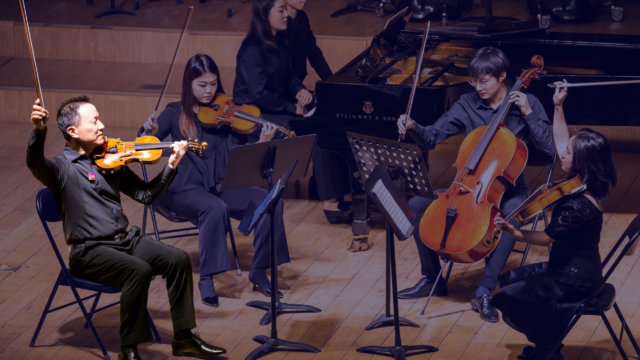Anti-Black Discrimination in American Orchestras

By Aaron Flagg
A broad historical look at American orchestras puts into context the field’s persistent lack of ethnic and racial diversity and examines the underlying culture of privilege, exclusion, and unacknowledged bias that contributes to it. Greater awareness of our shared history will contribute to fieldwide change in behavior—and ultimately improve equity.
Thy magic power re-unites
from Johann Christoph Friedrich von Schiller’s “Ode to Joy,”
All that custom has divided,
All men become brothers,
Under the sway of thy gentle wings.
later used by Ludwig van Beethoven in his Symphony No. 9
When we speak of the world of symphony orchestras in America, we say “the field.” “The field” has included many different stakeholders over the decades. Of course, we mean the orchestral music itself; the musicians who compose, organize, play, and conduct the music; the staff who arrange and publicize concerts to share the music; the audiences who listen to the music; and the volunteer community members who set policy, hire lead staff, govern, and raise the non-earned income needed to fuel the organizations that house the above. There are other stakeholders such as guest artists, musicians’ unions, service organizations like the League of American Orchestras, public and private foundations, governmental agencies, vendors, and more, all of whom support and impact the work of “the field.”
Despite a broad and functionally diverse group with many sincere individuals and well-intended initiatives, the field has never effectively engaged a fair representation of the racial and ethnic talent in the country within all the onstage and offstage roles noted above. One might ask: In 2020, are the musician, staff, and board roles equally accessible to everyone interested in this music? Sadly, the simple answer is no.
The reasons why include an ignored and uncelebrated history of minority artistry in classical music (by composers, conductors, performers, and managers); ignorance of the history of discrimination and racism against classical musicians of African-American and Latinx heritage by the field; and a culture in the field that is indifferent to the inequity, racial bias, and micro-aggressions within it.
What the above question, and those like it, ignores are the discriminatory practices embedded in the critical systems that people need to access the field. These practices, by which I mean exclusion, harassment, micro-aggressions, and an absence of cross-cultural sensitivity, discourage engagement and disrupt many aspects of one’s journey into the field. They impede formal educational pathways, regular interaction with the art and its artists, networking opportunities, informal mentorship, and access to industry information and performance opportunities that build confidence in and increase commitment from people of color to classical music.
In 2020, are the musician, staff, and board roles at orchestras equally accessible to everyone interested in this music? The simple answer is no.
These practices make the field inequitable. The only question is, how committed are we—individually and collectively—to changing the status quo? Since the victims of these practices did not create and do not control these systems, it is the field’s responsibility to remain aware of the history that built them, fix the inequitable practices, and then mitigate the damage caused by them.
Here is an analogy: If I said that anyone in town can come to my home to eat dinner this weekend, but assumed there was no need to include my address, shared this invitation only with people I already knew and liked, spent no time learning how to make all guests feel welcome, and neglected to consider that for decades my ancestors had literally and figuratively burned most of the bridges from certain parts of town to my home, you would advise me to not be surprised by a lack of diverse attendees. The systems in place to enact my invitation are not sufficient or equitable despite the possible sincerity of my offer. In the case of orchestras, there is a documented history of conscious exclusion, harassment, and discrimination that includes segregated unions; hostile groups of musicians, staff, and board leaders; and bifurcated access to gatekeepers and mentors. This history, like all history, has a present-day impact: a legacy embedded in the routine processes of life that we may not even see. Therefore, the roles within our music profession are not accessible to all.
Article Topics:
Related Links & Assets
Related
-
Learn | Executive Leadership & Management
Conference 2024: Opening Session and Gold Baton Award
-
Learn | Equity, Diversity & Inclusion
Conference 2024: Analyzing Orchestra Business Models for Strategic Decision-Making
-
Learn | Equity, Diversity & Inclusion
Conference 2024: Inspiring Change and Collective Impact through Inclusive Stages
Become a member
Thank you for your interest in the League of American Orchestras! We are dedicated to advancing the orchestral experience for all.
Join Now


